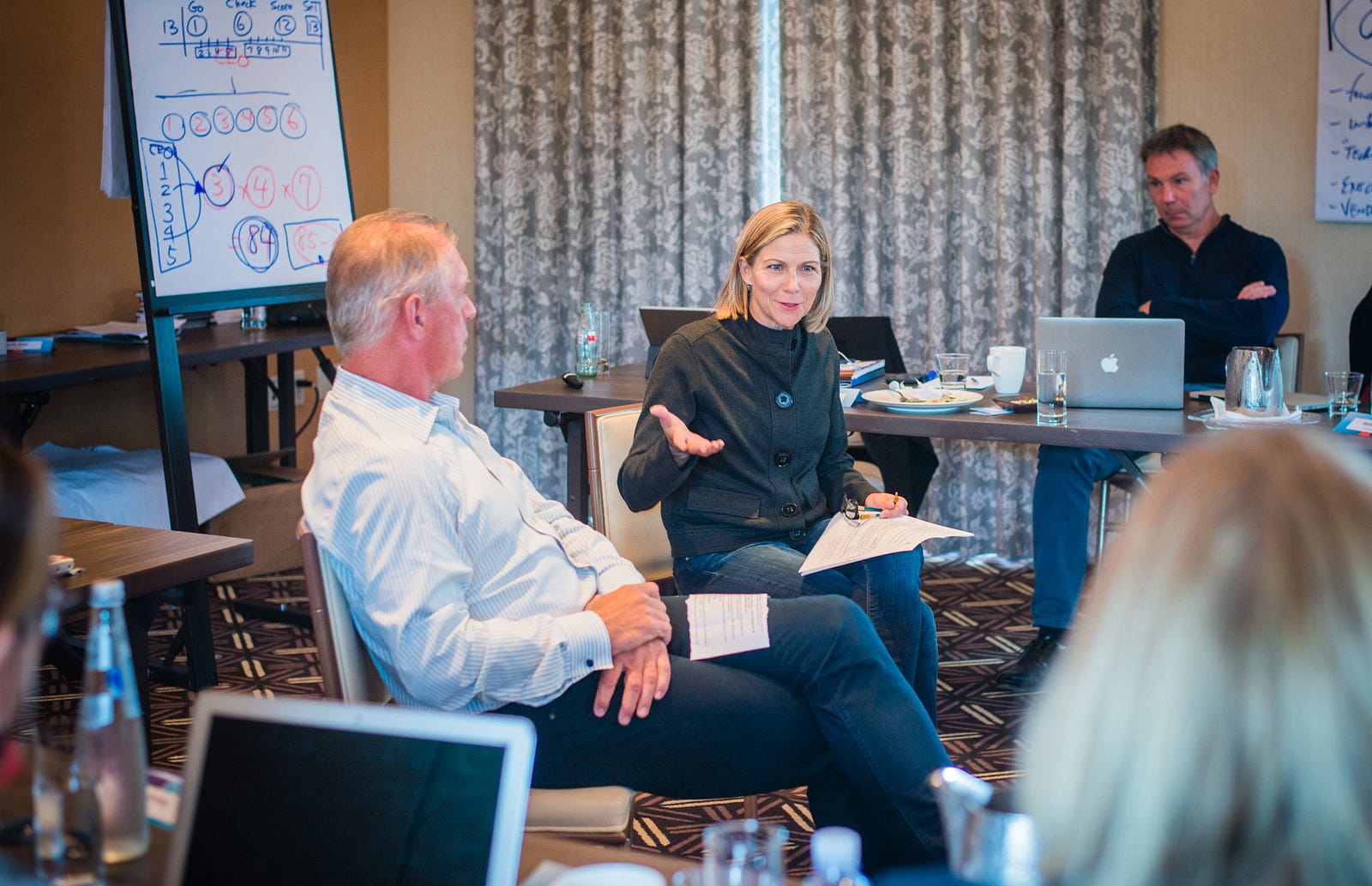Keeping it Real, from Some of the Busiest (and Calmest) People on the Planet
In the second of our themed reports from our CEO’s Silicon Valley Summit, we take a look at your most limited resource: time. Staying open, accessible and grounded can be hard for the successful CEO. So how do you keep time for your executive team, the wider company and your own headspace when all around you are losing theirs? We got the answers from some of the busiest people on the planet.
It’s worth mentioning that every single one of our guest speakers — collectively responsible for creating $200bn of shareholder value — arrived on time. No rushed late entries, no buzzing phones, no bag-carrying flunkies. An almost eerie calm surrounded the busiest of them. So what’s their secret?
Jeff Weiner (LinkedIn), Dave de Walt (FireEye) and Steve Lucas (Marketo) talked animatedly about the need to stay accessible and grounded as a CEO.
Steve Lucas pulled no punches: “I have an almost violent annoyance with CEOs who are inaccessible, too busy being ‘strategic’. Some people re-write stories about themselves like they’re Kim Jong Il.”
The more Zen-like Jeff Weiner has been described as “accessible and down- to-earth”, but he doesn’t see this as a compliment — to him it’s a requirement. Yes, the CEO manifests the company’s purpose, but that shouldn’t make him beyond reach. Every other Wednesday at 10am, Jeff holds a full company meeting with the whole of LinkedIn’s staff, broadcast globally. His thousands of employees consistently vote it the top “don’t-ever-change” company event. Steve Lucas reflected this attitude, sharing with us the remit he’s given his Chief of Staff: to ensure he walks the line between executing on agenda and staying accessible. “Keep me real, not elevated or self-effected,” is Steve’s request.
Joni Reicher received a similar directive whilst HR Director at Apple. “I need you to be the person,” said her boss, Tim Cook , “who stops me and says ‘Emperor, you are wearing no clothes’ ”.

Joni Reicher talks about the importance of accessibility.
Good CEOs actually spend very little time running the company, said Dave de Walt. They do however, spend a lot of time with the people who are running it. Dave recalled the time CEO Coach and Octopus Venture Partner John Hamm gave him the unusual gift of a miner’s helmet, complete with headlamp. The message was: all you need to do as CEO is make sure you’re shining your attention in the right place at the right time.
John Hamm himself had more to say on the matter of time and attention. He framed it in terms of a CEO’s authority: “Authority is a currency that must be judiciously spent, or it loses its value. Get the right people in the room, asking the right questions at the right time.” John went on to point out that a CEO’s bodily presence shouldn’t be essential for a meeting or a process to happen. Ideas of omnipotence and exclusive influence are not helpful (echoing Steve Lucas’s North Korean reference).
Tom Reilly proved this point. He came to meet us despite the fact that his company, Cloudera, was merging with Hortonworks, literally as he was speaking, resulting in a combined equity value of $5.2bn. It hit the press the following day.
Tom doesn’t work weekends. “If I’m doing 14 hour days, what am I working on? If I’m spending time on marketing or sales it tells me I don’t have the right person in that role aligned with our strategy .” Tom rarely runs any of ‘his’ meetings which, he says, frees him up to participate, rather than oversee. He agreed with John Hamm’s point about bodily presence, or the lack of it: “Meetings should run without me. My role is to align and empower and that’s it.”
Lily Kanter (of American retail institution Serena & Lily) spoke to us about focus. She called out entrepreneurs for their tendency to be frenetic ideas-generators. The discipline of focus serves the energetic, time-poor entrepreneur well. Lily also talked about her team. Her preference is for a VP to be a ‘player-coach’ — both a team builder and a team player. A Head of Marketing, for example, strong on analytics, should have their sleeves rolled up, “doing” analytics. This frees her, as founder CEO, to be the focused visionary.
Melissa Taunton of NEA (one of the world’s leading venture funds with $35bn capital under management) described what success and growth actually looks like: “It means your company will be unrecognisable in 12 months time, and again 12 months after that.” Navigating this rate of change, sustainably, requires both feet firmly on the ground, keeping time available for clear,
directive thinking.
Melissa, along with all of our guest speakers, departed as calmly as she’d arrived, personifying a balance of efficiency and effectiveness.
In our next post we’ll look at the theme of motivation and we’ll hear about Dave de Walt’s hierarchy of needs: fun, learning and money — in that order.
“You read about it in the books, but it comes to life when you hear it from the people who did it — and it worked.”
Noor Shaker — CEO and Founder of GTN, an Octopus Portfolio
Company














